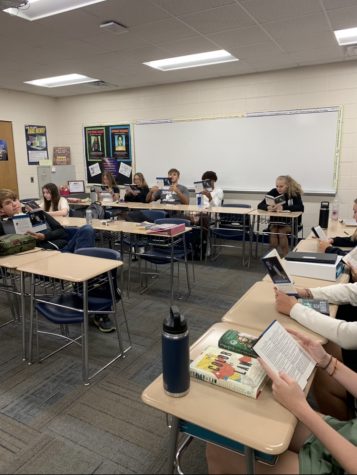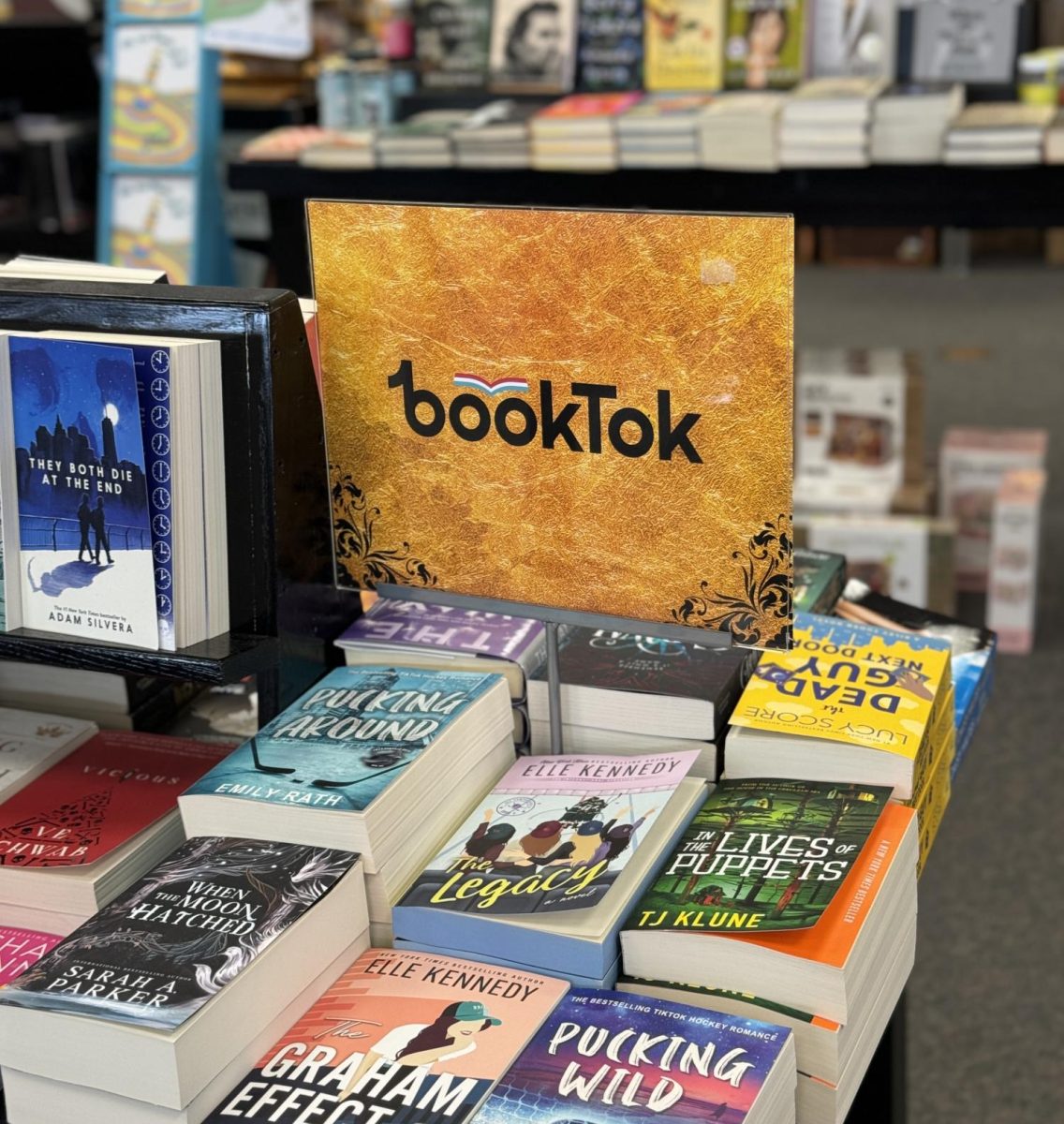The end of 2021 brought the deaths of powerhouse authors Eve Babitz, Joan Didion and Gloria Jean Watkins (more commonly known by her pen name, bell hooks). With such losses in the literary world, it is imperative that the teachings and writings of these women continue to be honored in the new year and beyond.
Hollywood’s hedonist: Eve Babitz
Born in 1943, Eve Babitz grew up surrounded by the glitz and glam of Hollywood. Her father was a violinist in the Twentieth Century Fox Orchestra, her mother was an artist and her godfather was famous composer Igor Stravinsky.
This unique perspective afforded her the ability to write about life in Los Angeles in the 1960s and 1970s. Few authors are said to have chronicled an era so distinctly. “Babitz knew everyone from Jim Morrison to Steve Martin, but her greatest subject was herself. She was often witty, sometimes amazed and sometimes could only shrug,” an NPR article reads. Culturally, L.A. has always been a humid jungle alive with seething L.A. projects that I guess people from other places can’t see. It takes a certain kind of innocence to like L.A., anyway. It requires a certain plain happiness inside to be happy in L.A., to choose it and be happy here. — Eve Babitz
Her beautiful prose paired with the stardom she was constantly surrounded by resulted in critically acclaimed works such as “Eve’s Hollywood” and “Slow Days, Fast Company.” However, her work was not immediately successful. As explained by NPR, “[h]er books sold modestly, initial reviews were mixed and she rarely published after the 1990s. But the world caught up to her.”
In 2019, author Lili Anolik published a biography of Babitz’s life and work titled “Hollywood’s Eve: Eve Babitz and the Secret History of L.A.” Anolik’s work exposed Babitz to the younger generation of women, and Babitz’s various writings surged in popularity.
On Dec. 17, 2021, Babitz passed away at 78 years old. The hedonist writer will forever be remembered as Los Angeles’s daughter, and her works will live on for years to come.
The coolest critic: Joan Didion
Often considered Babitz’s more cynical counterpart, author Joan Didion was born in 1934 in Sacramento, Calif. Didion captured the unique dysfunction of America, specifically Los Angeles, during the 1960s and 1970s in a voice only recognizable as her own.
A Los Angeles Times article by writer Elaine Woo explained her style. “Her essays explored an eccentric range of subjects — shopping malls, John Wayne, sojourns in Hawaii and havoc in Haight-Ashbury — in a style that was edgy, restrained and elegant.”
During the blue nights you think the end of day will never come. As the blue nights draw to a close (and they will, and they do) you experience an actual chill, an apprehension of illness, at the moment you first notice: the blue light is going, the days are already shortening, the summer is gone…. Blue nights are the opposite of the dying of the brightness, but they are also its warning. — Joan Didion
Didion was never concerned with overt meaning in her works; she simply portrayed things as they were with a chilling sense of realism. In nonfiction collections such as the decorated “Slouching Towards Bethlehem,” the nuanced reality of life in Los Angeles during the psychedelic era is distinctly depicted. But as Didion established herself as one of the greats in the writing world, her personal life grew strenuous.
In 2003, her daughter Quintana Didion faced a slew of medical issues, and on Dec. 30 of the same year, Joan Didion’s husband John Gregory Dunne died suddenly. This onset of tragedy led her to write “The Year of Magical Thinking,” a critically acclaimed work that depicted the year after her husband’s death and the experience of taking care of her ailing daughter on her own.
Personal and raw, this book sold 200,000 copies within its first two months, topped bestseller lists and was a Pulitzer finalist. However, within the same month “The Year of Magical Thinking” was published, Didion’s daughter died at just 39 years old on Aug. 26, 2005. With so much grief, Didion once again found writing to be her outlet, publishing “Blue Nights” in 2011, a book that parallels Quintana’s childhood with Didion’s perceived failures as a parent.
On Dec. 23, 2021, Didion passed away due to complications of Parkinson’s disease at 87 years old. She possessed a unique ability to turn tragedy into powerful writing in a distinct, edgy style that will continue to have a lasting impact on the writing world.
Spearheading revolution: bell hooks (Gloria Jean Watkins)
Legendary feminist author and professor bell hooks was born in Hopkinsville, Ky., in 1952. Writing her name in all lowercase letters as a way of emphasizing her works rather than her individual identity, hooks’s pen name honored her great-grandmother, Bell Blair Hooks.
hooks grew up attending segregated schools in the South and went on to attend Stanford to pursue an undergraduate degree in English literature, get her master’s degree at the University of Wisconsin and earn a doctorate in literature at the University of California, Santa Cruz.
Today, hooks has a broad range of books to her name, including “Ain’t I a Woman? Black Women and Feminism” and “Feminist Theory From Margin to Center.” These books in addition to her teachings at universities such as Stanford, Yale, Oberlin College, City College of New York and Berea College have established hooks as a giant in the movements for feminism and equality for all.
Despair is the greatest threat. When despair prevails we cannot create life-sustaining communities of resistance. — bell hooks
Beyond feminist struggles, hooks was concerned with dismantling white supremacy and capitalism in America and around the world. Passionate about education, she was honest about the elitism of higher education in works such as “Teaching Community: A Pedagogy of Hope,” in which she preached the concept of radical openness in all levels of education.
AP English Literature and Public Speaking teacher Robyn Samuelson explained her introduction to hooks’s works as a graduate student. “hooks made me understand that the ideas made popular by second wave feminism were narrowly framed and represented the struggle of white women, and not all women,” she said. “hooks’s work unveiled the complexity of identity and difference at the intersections of gender, race, and class.”
Samuelson continued, “hooks demands of white students and theorists that they interrogate their own racialized identities, pushing me to investigate my white racial identity, and the ways I’ve benefited from membership in that group. Ultimately I began to understand the ways whiteness sets up a hierarchical system that naturalizes a dominant/subordinate worldview.”
Educators, students and activists alike can speak to the power of hooks’s work as a revolutionary in the fight for equality across race, gender and class. At 69 years old, hooks passed away on Dec. 15, 2021, due to kidney failure. With an undeniable influence on modern day movements for equality, her writings, teachings and spirit will have resounding effects on generations to come.
PVHS librarian Carissa McDonald expressed the importance of honoring these under-celebrated female authors. “I think just from a female perspective… losing those strong voices is always extra difficult, and I think that, in particular, [these authors] are not overly celebrated, and if you asked 100 people, I don’t know that anyone would’ve read them or even heard of them, and that’s unfortunate,” she said. “I wish there was a space for more academic [writers] because I do consider [Babitz, Didion and hooks] academic writers. I think that we don’t often grapple with those types of writings as much as maybe we should or could.”
Whether it was distinctly chronicling an era, offering social critiques or fighting for equality, these female authors have established themselves as greats in the literary world. They will forever be remembered for their contributions. Rest in literary power, Eve Babitz, Joan Didion and bell hooks.











Maya Maynard • Jan 26, 2022 at 4:41 pm
This was very well written Jayne! This article was very interesting to me as I did not know Babitz, Didion, and Watkins. I enjoyed reading about them and am sad to hear about them passing. I enjoyed reading about Joan Didion the most as her story was the most interesting and heart wrenching to me.